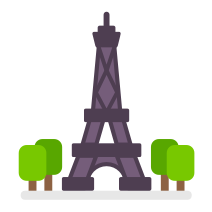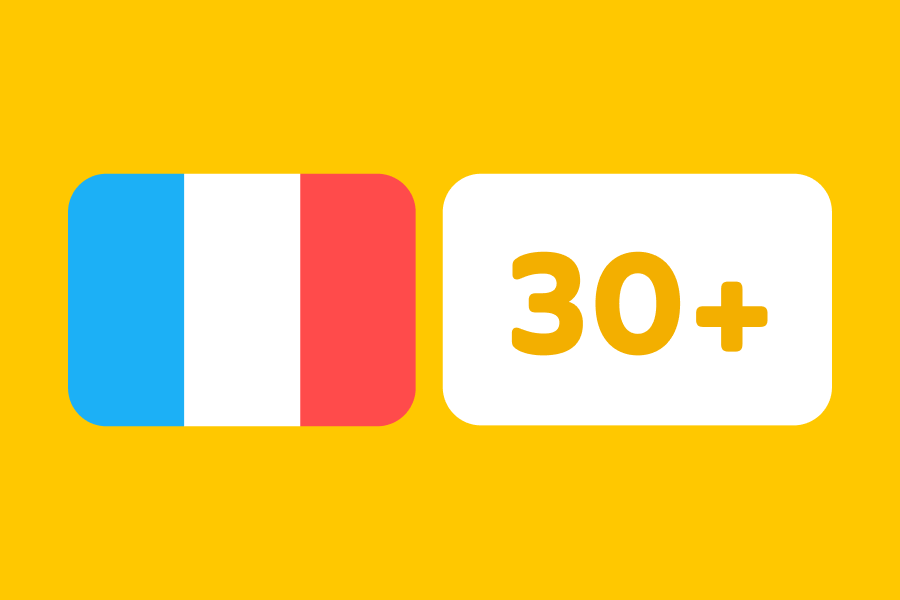There’s no better way to level up your trip to France than by practicing your French! Learning a few key phrases will help you feel more confident ordering in a French pâtisserie (pastry shop) and chatting with locals at a marché (market).
Here are the most important phrases you’ll need in France. On y va !

French 101
You don’t have to be fluent to have fun with French.
You’re on vacation, so don’t stress! Enjoy using the French you know and see what else you learn along the way. (And you might be pleasantly surprised that even beginners can have real conversations!)
It’s the effort that counts.
Using some French shows locals that you’re interested in their culture and community.
Study smart, not hard.
Focus on the most useful French words and phrases, and worry less about getting every grammar detail right. A few key words go a long way!
Greetings
| Hello / Good morning / Good afternoon | Bonjour |
| Good evening | Bonsoir |
| Excuse me | Excusez-moi |
| Please | S’il vous plaît |
| Thank you | Merci |
| You’re welcome | De rien |
| Goodbye | Au revoir |
| Yes | Oui |
| No | Non |
| My name is… | Je m’appelle… |
